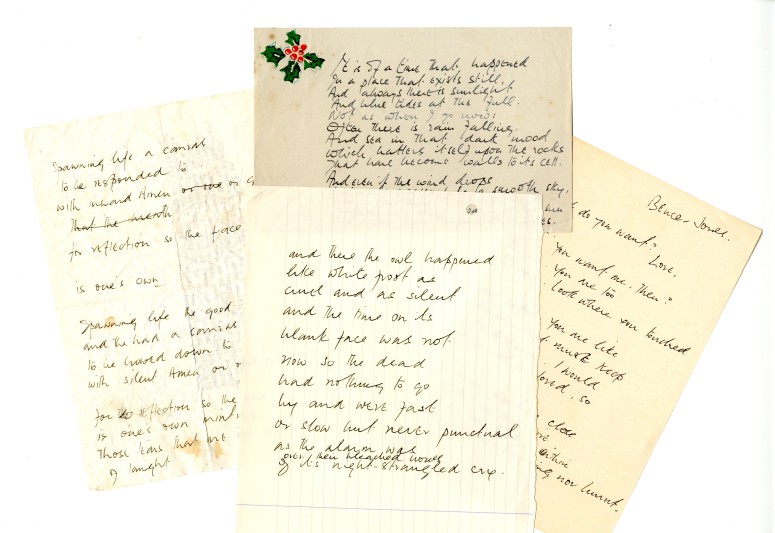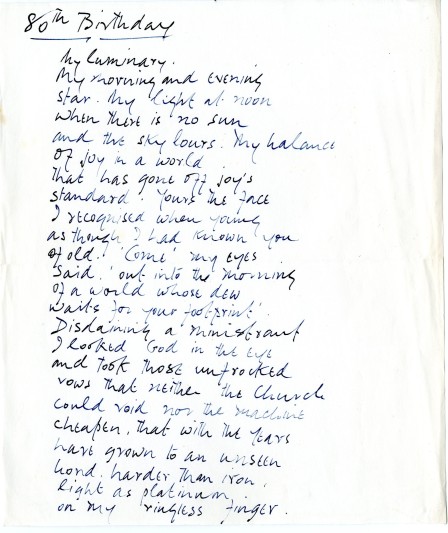Professor Tony Brown, Co-Director of the R.S. Thomas Research Centre, writes: The R.S. Thomas Research Centre at Bangor University, the poet’s alma mater, houses a unique collection of R.S. Thomas manuscripts, letters, journals and memorabilia, built up over the last two decades, an archive which in normal times receives many visitors from the UK and abroad. The present purchase represents a major addition to our already substantial holdings. We believe it to be, in fact, the most significant collection of R.S. Thomas material which remained in private hands.
The collection includes manuscripts and drafts of unpublished and published poems from various stages of Thomas’s long career, early unpublished prose, unpublished letters to editors, and a collection of 172 manuscript letters (1966-76) to a ‘Miss Davidson’.
Particularly noteworthy is the material from the beginning of Thomas’s career, in the 1940s, a period from which very little manuscript material has survived. One prose piece, ‘Fairy Story’, indeed dates from 1935, when Thomas was still a young curate and shows an imagination akin to the earliest, unpublished poetry and quite different from the poetry of the Welsh hills which first made his name. As well as some other early prose pieces, the present collection includes, for instance, three typescripts of previously-unknown poems sent in c.1940 to Cyril Connolly at Horizon; one of these Thomas notes in a covering letter ‘seems precariously near Dylan Thomas’, a rare (and accurate) reference to his already well-known Welsh contemporary.
Another, much later, manuscript poem entitled ‘Eightieth Birthday’ was written to his wife, the distinguished artist Mildred ‘Elsi’ Eldridge (1909-1991), many of whose letters, journals and notebooks are also housed in the Centre at Bangor. A deeply personal poem in its own right, it was significantly revised, probably in the light of Thomas’s reading of the fourteenth-century Welsh poet Dafydd ap Gwilym, and published only after Thomas’s death as the fine late poem ‘Luminary’ (Uncollected Poems).
R.S. Thomas engaged in few extended correspondences, which makes the cache of letters at the heart of this collection especially remarkable. There are 172 handwritten letters, dating from 1966-1976, to a Miss Davidson, of whom we have virtually no other record. It is possible that she was a former parishioner; now resident in Liverpool, she is evidently an educated woman–references in Thomas’s letters include Tillich, Kierkegaard, Tolstoy and Keats–and evidently suffered bouts of ill health, and the letters show Thomas at times in a reflective and pastoral role. The correspondence ends somewhat mysteriously with Miss Davidson, with evident affection, returning all of the letters prior to her leaving Liverpool to live with, and apparently to tend to, the homeless in London. This is a relationship that will, manifestly, reward further research.
This collection represents the most important single acquisition that the Centre has made in many years and the Co-Directors, Professor Jason Walford Davies and myself, are extremely grateful for the financial support from the Friends of the National Libraries that has made this possible.

